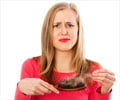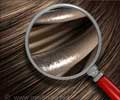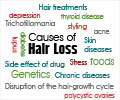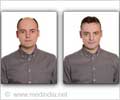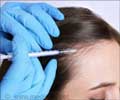Despite its effectiveness in preventing hair loss, conclusive research on promoting hair growth is lacking
- Explore the potential of biotin for hair health, weighing its reputation against scientific evidence
- While it proves effective in preventing hair loss, conclusive research on promoting hair growth remains elusive //
- Consider incorporating biotin through a balanced diet or supplements, mindful of recommended dosages and potential side effects
Can biotin live up to its reputation and stimulate hair growth?
Understanding Biotin's Role
Dermatologist Wilma Bergfeld, MD, attests to the positive impact of biotin on hair disorders, highlighting its role in promoting thicker nails. While it is deemed safe for oral consumption, the question arises—can it go beyond preventingCombatting Hair Loss with Biotin
While biotin is an essential vitamin crucial for keratin production, which plays a vital role in skin, nail, and hair formation, its direct influence on hair growth remains inconclusive. Current research falls short of providing definitive evidence supporting biotin's role in enhancing hair growth.Despite the lack of conclusive evidence on promoting hair growth, biotin has demonstrated efficacy in preventing balding and hair loss, particularly in cases of alopecia. A 2012 study observed improvements in hair thickness and growth in women with self-perceived thinning hair after taking a multivitamin containing biotin.
Recommended Biotin Intake
For those considering biotin supplementation, the recommended daily intake is 30 micrograms (mcg) for adults, with a slightly higher requirement for pregnant individuals at 35 mcg. In cases of alopecia, dermatologists may suggest a higher dosage of 3 milligrams (3,000 mcg) daily.Sources of Biotin
Biotin can be obtained through various sources, including biotin-rich foods such as beef liver, eggs, salmon, pork chops, sweet potatoes, almonds, and broccoli. Additionally, dermatologists may recommend mega-B vitamin combinations, containing biotin, zinc, vitamin C, and folic acid, or the individual components as supplements.Biotin in Hair Care Products
To incorporate biotin into a hair care routine, some individuals turn to biotin-infused shampoos. While these products are marketed to combat hair loss, the research supporting their effectiveness remains limited. Biotin shampoos may contribute to fuller-feeling hair, but expectations of miraculous regrowth should be tempered (1✔ ✔Trusted SourceIs Biotin as Good as Advertised for Your Hair Loss?
Go to source).
Health Dangers Associated with Excessive Biotin
While incorporating biotin into one's regimen is generally considered safe, caution is advised to avoid overconsumption. Numerous studies have reported no negative effects from 10–50 mg of biotin per day, and in individuals with biotinidase insufficiency, doses up to 200 mg of oral biotin or 20 mg of intravenous biotin do not result in toxic symptoms.Taking more biotin than is advised can result in clinically significant false positive or false negative results on laboratory tests. These inaccurate findings could result in misdiagnosing a medical disease or ineffective patient management. For more information, see the section that follows.
Consequently, some recent case reports—including six children who were given high doses of biotin (2–15 mg/kg body weight per day) to treat inherited metabolic diseases—have reported findings that incorrectly indicate Graves' disease and severe hyperthyroidism in patients taking 10–300 mg biotin per day. Within 24 hours of taking the supplement, thyroid function tests have been found to be affected by even a single 10 mg dose of biotin (2✔ ✔Trusted Source
Biotin
Go to source).
When laboratory test results do not match the patient's clinical presentation, the FDA urges healthcare professionals to inquire about any supplements the patient may be taking that include biotin and to rule out biotin interference as a potential source of mistake
In the ongoing pursuit of healthier and fuller hair, biotin emerges as a promising ally. While the scientific evidence supporting its role in hair growth is not yet definitive, the positive impact on preventing hair loss is evident.
Before considering biotin supplements, ensuring a well-balanced diet rich in biotin is the first step towards healthier and more resilient hair.
References:
- Is Biotin as Good as Advertised for Your Hair Loss? - (https://health.clevelandclinic.org/is-biotin-as-good-as-advertised-for-your-hair-loss/)
- Biotin - (https://ods.od.nih.gov/factsheets/Biotin-HealthProfessional/?ref=lavieensante.com)
Source-Medindia




